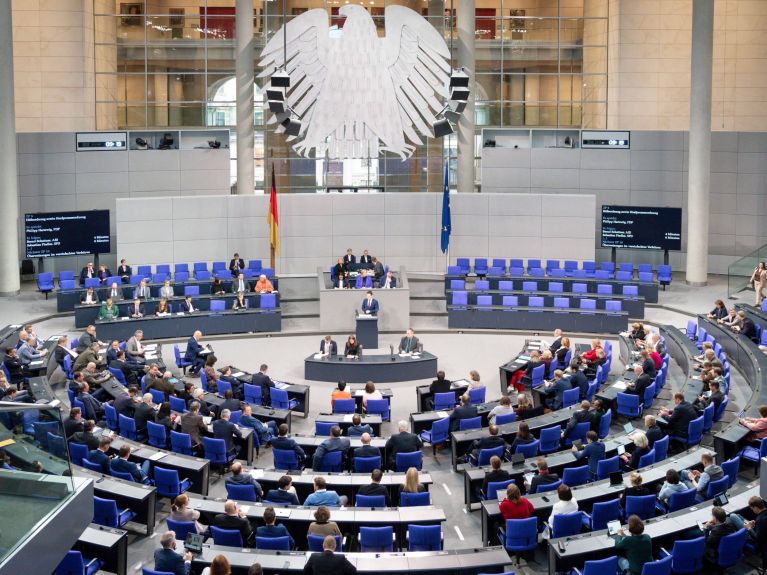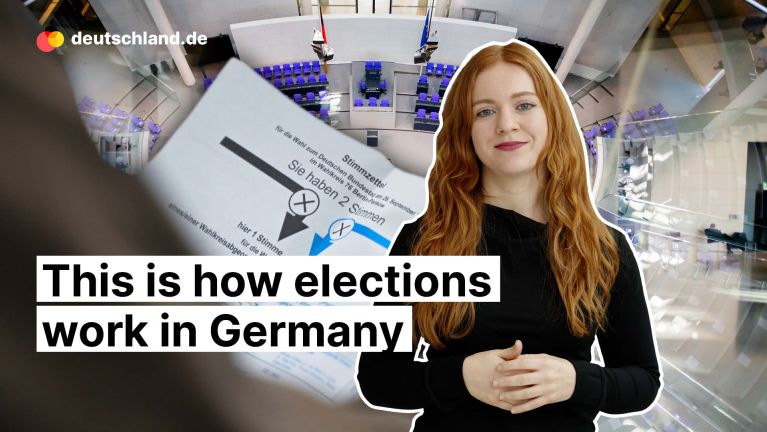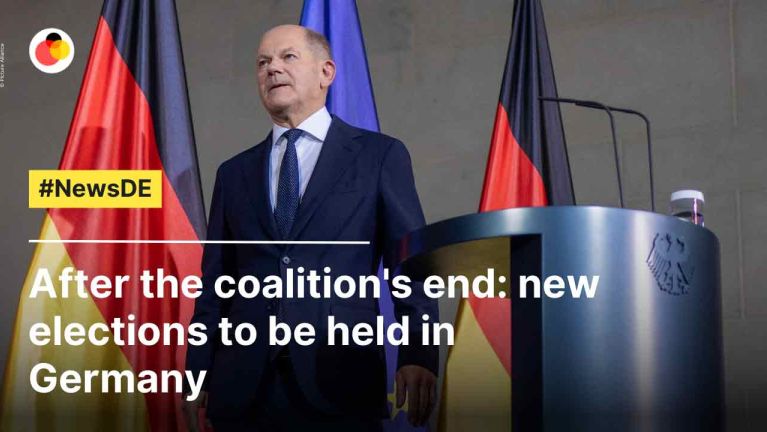New elections to be held in Germany
What triggered the end of the governing coalition and what happens next?

What is the significance of Federal Chancellor Olaf Scholz dismissing Finance Minister Christian Lindner on the evening of 6 November?
It means that after three years, the “traffic light coalition” made up of the SPD, Alliance 90/The Greens and FDP has failed. The governing parties were unable to reach an agreement in a dispute over the budget and economic policy. In a statement issued on the evening of 6 November, Scholz said his trust in Christian Lindner, Finance Minister and Chairman of the FDP, had been broken. Lindner’s dismissal was necessary in order “to avert damage to the country”, said Scholz.
The coalition of SPD and Greens under Federal Chancellor Scholz will now govern the country until the federal elections on February 23, 2025, followed by the election of a new Federal Chancellor by the newly elected parliament.
What exactly was the dispute about?
The main issue was that Scholz wanted greater financial leeway than the budget situation actually allows. He considers this to be feasible based on the option of an “overriding resolution” provided for under the Basic Law. Lindner does not see the situation in the same way, saying he considered himself bound by his oath of office to the “debt brake” enshrined in the Basic Law. Scholz wants to use the funds to expand aid for Ukraine and put together a package to support the German economy, including reduced energy prices and an investment premium. Lindner accused Scholz of “deliberately bringing about the end of the coalition” by putting an end to cooperation with the FDP and himself.
Dieses YouTube-Video kann in einem neuen Tab abgespielt werden
YouTube öffnenThird party content
We use YouTube to embed content that may collect data about your activity. Please review the details and accept the service to see this content.
Open consent formWhat do the coalition partners from the Green Party say?
In a joint statement to the press, Vice-Chancellor and Economics Minister Robert Habeck and Foreign Minister Annalena Baerbock regretted the collapse of the coalition, which they felt was unnecessary. There were possible solutions, they said, but the FDP was “not prepared to pursue these paths”. With a view to new elections, Habeck said: “In the USA, we have seen what happens when an election campaign and political debate are poisoned by hatred and incitement, by populism and divisiveness. Germany is capable of doing things differently: Germany will be better than this.”
What will happen in Germany now?
The Federal Chancellor calls a vote of confidence in the Bundestag. By calling a vote of confidence under Article 68 of the Basic Law, the Federal Chancellor can establish whether or not his policies are supported by the Bundestag, i.e. whether he still has the approval of the majority of MPs. If the majority of MPs do not vote in favour, the Federal President can dissolve the Bundestag within 21 days at the proposal of the Federal Chancellor, after which new elections are called.
How will the government continue to operate?
The Federal Chancellor will remain in office and the SPD and Greens will continue their work as a minority government. The ministries headed by the FDP will be taken over by politicians from the SPD and the Greens. Scholz announced that, despite the collapse of the coalition, he intends to put laws to the vote by the end of the year that he considers to be strategically important and which cannot be delayed. These include a package of instant measures for industry. Majorities would then have to be found in the Bundestag to pursue these plans, however – and this will be barely feasible without involving the opposition.
Has this ever happened before in German history?
Early elections have been held in the Federal Republic of Germany on three occasions: in 1972, 1983 and 2005. Federal Chancellor Willy Brandt of the SPD put the vote of confidence to the Bundestag in 1972. The reason for this was the dwindling support for his Ostpolitik among the members of parliament. Brandt lost the vote of confidence, which is what he intended. He was re-elected Federal Chancellor in the new elections. In 1982, a constructive vote of no confidence was held against the incumbent Federal Chancellor Helmut Schmidt of the SPD, among other things because of differences over his economic and security policy. The majority of MPs withdrew their confidence in Schmidt, and Helmut Kohl of the CDU became Federal Chancellor. Kohl put a vote of confidence to the Bundestag right away in order to underpin the legitimacy of his chancellorship. He was elected Federal Chancellor in the subsequent elections. In 2005, Federal Chancellor Gerhard Schröder (SPD) called a vote of confidence and lost the vote. The CDU/CSU won the new elections in the same year – marking the start of Angela Merkel’s 16 years in government.
Dieses YouTube-Video kann in einem neuen Tab abgespielt werden
YouTube öffnenThird party content
We use YouTube to embed content that may collect data about your activity. Please review the details and accept the service to see this content.
Open consent form


